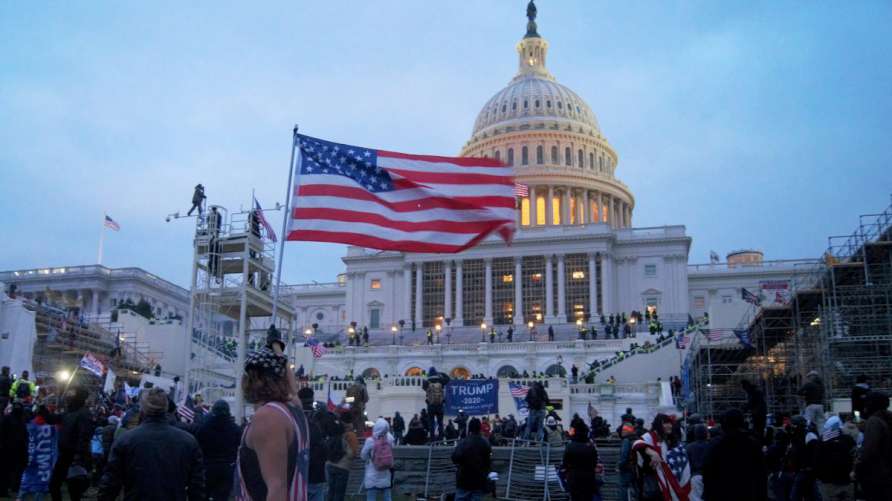
Equating the U.S. Capitol riot with GOP efforts to reform election laws is a way to avoid honest debate over the latter.
lengthy New York Times editorial over the weekend has set the stage for this week’s Jan. 6 anniversary coverage. “Every Day Is Jan. 6 Now,” declare the Times editors, warning that Republican lawmakers in 41 states “have been trying to advance the goals of the Jan. 6 rioters — not by breaking laws but by making them.”
The argument itself, that tweaking state election law is somehow a subversion of democracy, is absurd and incredibly lazy. But it’s important to note, if only because it will serve as the baseline narrative for the entire corporate media’s Jan. 6 coverage this week.
Their message — they will all have more or less the same message — is simple: all Republicans are insurrectionists, the GOP is the enemy of the people, and the only way to preserve American democracy is to ensure that only Democrats can win elections.
To make this case, the Times’ editors had to stage a kind of linguistic insurrection. Lawful, constitutional efforts by elected representatives to change state election laws amount, in the Times’ telling, to a “bloodless, legalized” insurrection that “that no police officer can arrest and that no prosecutor can try in court.”
That’s no different than saying “speech is violence.” It’s nonsensical. By definition, there’s no such thing as a “bloodless, legalized” insurrection, any more than there could be a “mostly peaceful” riot. That said, the Times editors are wrong about one thing: state laws, including state election laws, can and often are challenged in court.
But the nonsense here serves a purpose. If the Jan. 6 riot can be conflated with perfectly valid GOP-led efforts to shore up state election rules, then perhaps those efforts can be wholly undermined, regardless of what voters in red states want. The irony is that it isn’t GOP lawmakers trying “to wrest control of electoral votes from their own people,” as the Times editors charge; it’s the Democrats and their media allies.
Consider that last year, 44 states enacted some 285 bills related to elections. In blue states, those bills tended to loosen certain election rules and requirements, especially for mail-in and absentee ballots. That makes sense given that Democrats tend to vote by mail-in ballot far more often than Republicans. Making mail-in and absentee voting easier is merely a way to boost Democratic votes in any...






















